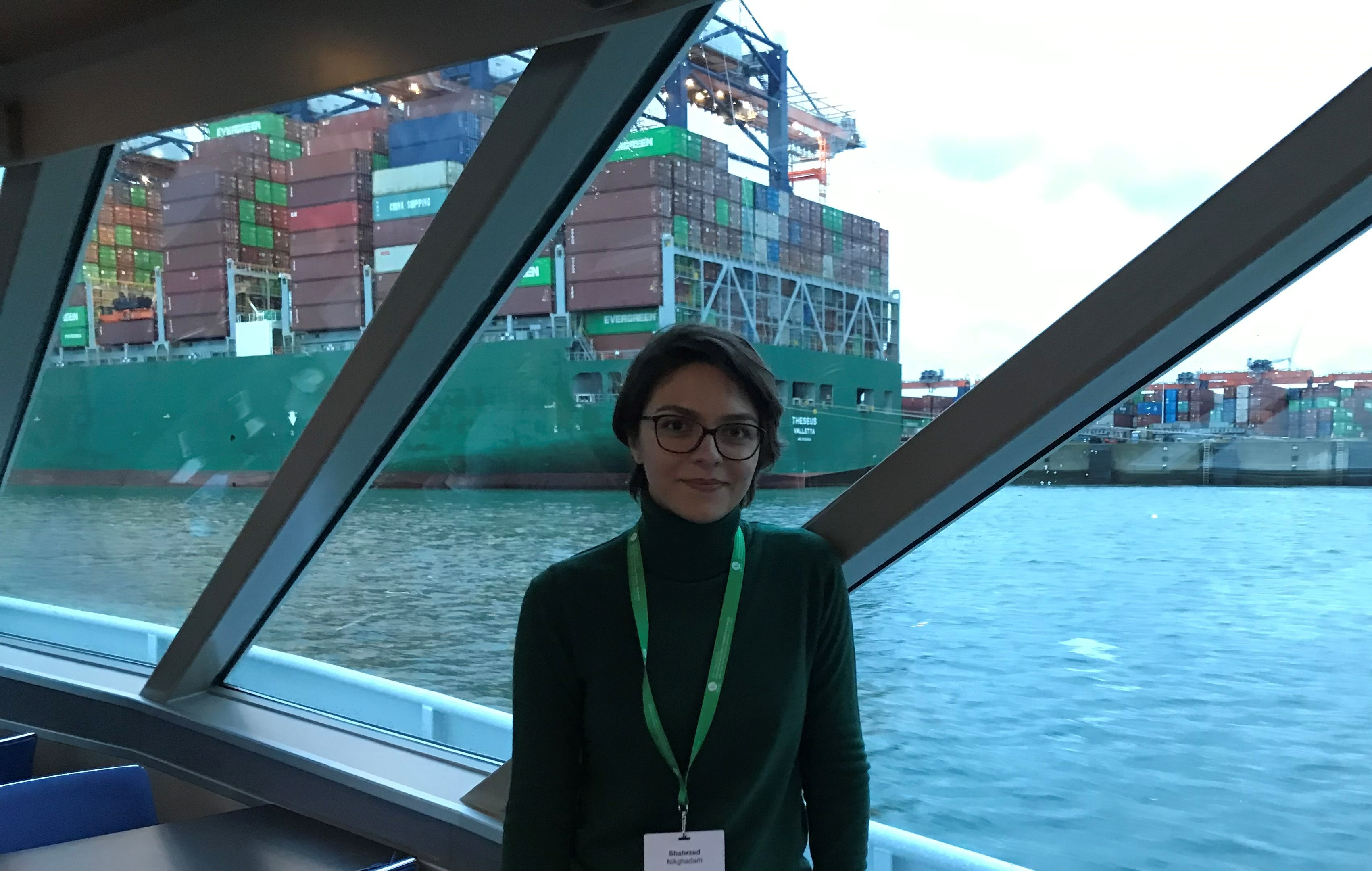Port of Rotterdam can increase efficiency by enhancing the cooperation between its service providers
Ports have become busier than ever before. The Port of Rotterdam is visited by about 30,000 sea-going vessels every year. Accommodating more vessels in shorter times is at the top of the agenda for many ports. However, the process of servicing a vessel in port is complex due to the involvement of multiple service providers. TU Delft PhD candidate Shahrzad Nikghadam showed that improving cooperation between service providers is beneficial for all cooperating parties and can lead to a reduction of 20% in waiting times.
‘Vessels require multiple services like traffic management, pilotage, towage, and mooring. These are offered by independent organisations, each with their own business interests, characteristics, and resources. However, their close cooperation is needed to create a seamless experience of services,’ says Nikghadam. Her research found that the cooperation of service providers through information sharing can shorten the vessels waiting times by up to 20%.
Knock-on effects
For example, pilots and tugboats can inform each other when they observe a surge in demand for services and adapt their practices. As these are difficult to predict, observation and communication are essential to minimize knock-on effects in the chain that may lead to delays. ‘I found that the key to facilitate the cooperation of the service providers is designing mutually beneficial strategies acknowledging the service providers’ unique characteristics. Even if collective benefits exist, the reward for individual providers is not always clear. My research has helped to clarify these’, explains Nikghadam.
Modelling port processes
The research was done in the framework of the project Swarmport, funded by NWO. ‘I developed an optimization model to design schedules for services and a simulation model to test the impact of cooperation strategies.’ The model is based on information gathered from different service providers who collaborated in the research. ‘This study brought shared awareness among all stakeholders about the benefits enhanced cooperation can bring, backed up by numbers. The lab environment can help to make reliable decisions before executing them in practice’ says Nikghadam. Aiming to bring the insights gained from her research into practice, Nikghadam is currently a port call analyst at the Port of Rotterdam Authority.
Shahrzad Nikghadam will be defending her thesis on 5 July.
